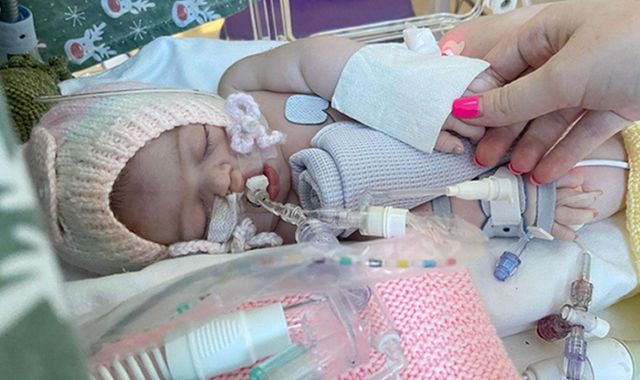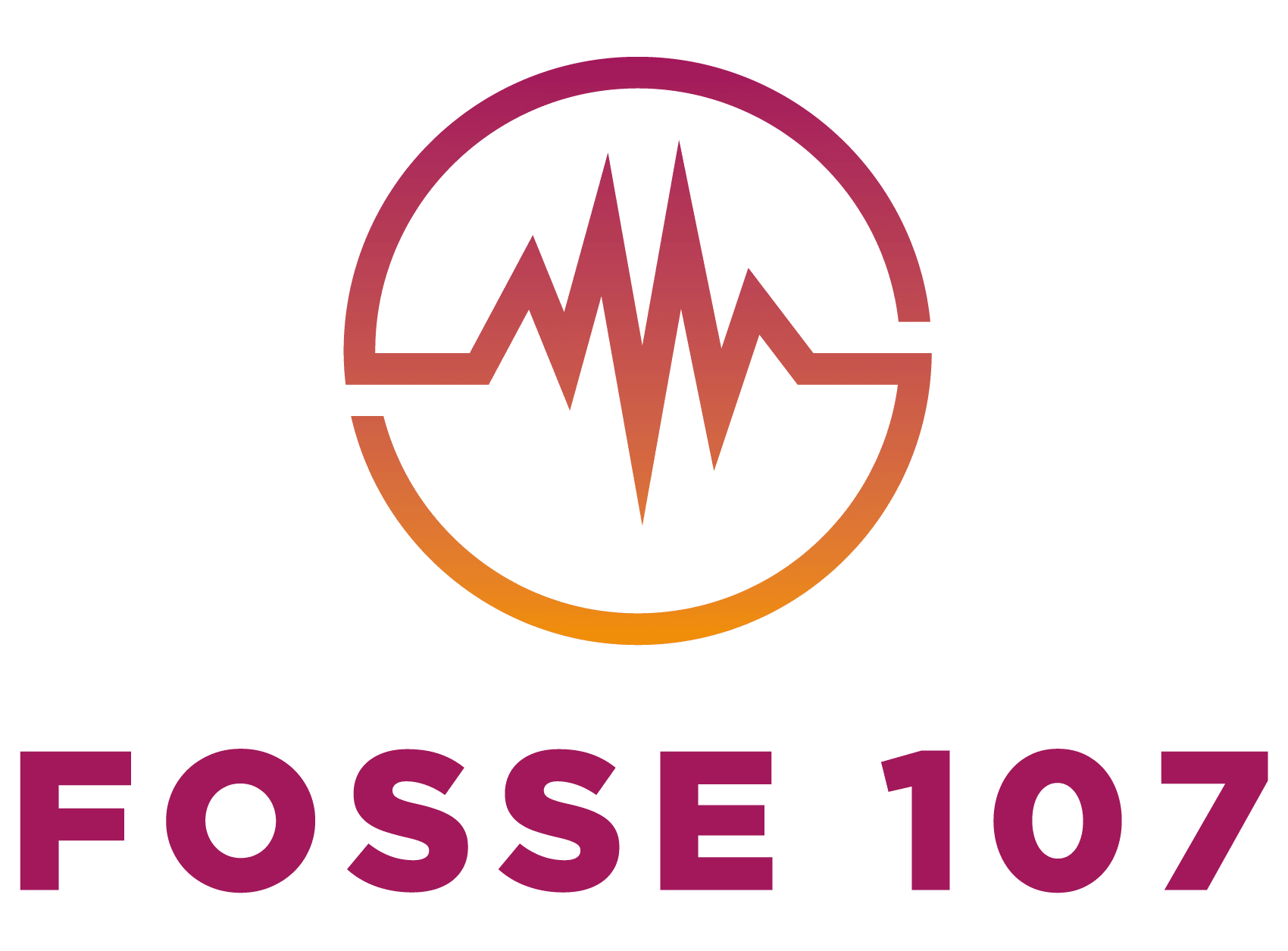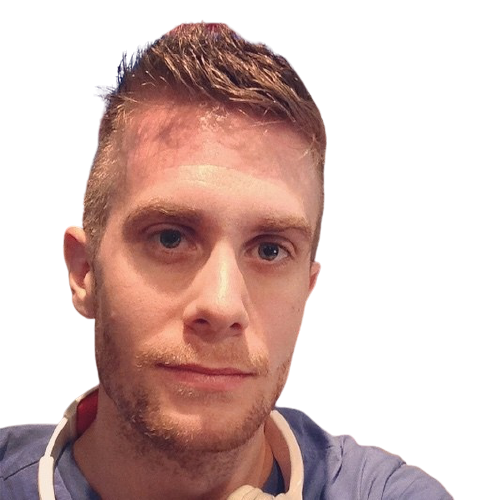
The mother of a baby whose stomach and bowel "moved into her chest" has hailed new research aimed at treating her daughter's rare condition.
Amelia Turner was given life-saving surgery at Great Ormond Street Hospital (GOSH) when she was a few days old.
She suffered from severe congenital diaphragmatic hernia (CDH) - a potentially fatal condition affecting one in every 3,000 babies.
The condition means the diaphragm - the muscle between the abdomen and the chest - has not fully developed.
As a result, organs that are supposed to sit within the abdomen could move into the chest space and crush fragile growing lungs. It means babies don't have enough space to grow fully formed lungs.
Current treatment for severe CDH involves surgery while the baby is in the womb, with surgeons delicately placing a surgical balloon into the baby's windpipe to stimulate the lungs to grow. This only increases survival odds to 50%.
'A complete whirlwind'
Amelia's mother, Georgia Turner, 26, from London, said finding out she had the condition made her pregnancy "a complete whirlwind".
"The team hoped Amelia's condition would only be moderate," she said. "Unfortunately, after Amelia was born, the clinical team told me how serious her condition was as her bowel and stomach had moved into her chest."
Amelia spent four months recovering on the neonatal unit at GOSH, then another three months at her local hospital, before she could go home for the first time.
The "cheeky" 17-month-old needed a second surgery after her CDH reoccurred when she was 15 months old.
It's hoped new research will not only make treatment less invasive and significantly increase survival rates but also lower the chances of relapses.
Read more from Sky News:
TikTok puts hundreds of UK jobs at risk
'Headphone dodgers' targeted by new TfL campaign
Science-fiction made real
A system developed by experts at GOSH and University College London in the UK, and KU Leuven in Belgium, would see treatment delivered straight to a baby while still in their mother's womb.
It would see nanodiamonds used to transfer a hormone, known as vascular endothelial growth factor (VEGF), which stimulates lung growth.
It was tested on lab-grown mini-lungs, using 3D printing to simulate compression, as well as rats with the condition.
One of the experts, Dr Stavros Loukogeorgakis, a GOSH surgeon, said: "Nanodiamonds, 3D-printing and growth hormones in the womb all sounds a bit science-fiction. But this research is really showing us what is possible."
He said the treatment could be available to families in as little as five years.
Ms Turner said: "New research like this is great to see how experts are trying to make the treatment for CDH more successful for all children, and less invasive.
"Hopefully better treatments will also prevent relapse cases like Amelia."

(c) Sky News 2025: Scientists hail 'sci-fi' treatment for babies with rare condition


 England warned it faces six million new cancer cases by 2040 - with these areas worst hit
England warned it faces six million new cancer cases by 2040 - with these areas worst hit
 Air India crash: Families prepared for court fight over disaster which left 241 dead
Air India crash: Families prepared for court fight over disaster which left 241 dead
 Nigel Farage has a new 'leave' campaign - here's how it could work and how it might impact you
Nigel Farage has a new 'leave' campaign - here's how it could work and how it might impact you
 Starship: SpaceX's biggest rocket completes spectacular test flight after year of mishaps
Starship: SpaceX's biggest rocket completes spectacular test flight after year of mishaps
 Israeli protesters demand Netanyahu does whatever it takes to bring hostages home - but is he listening?
Israeli protesters demand Netanyahu does whatever it takes to bring hostages home - but is he listening?
 Consumers warned after thousands targeted by scammers impersonating financial regulator
Consumers warned after thousands targeted by scammers impersonating financial regulator
 Where are the UK's asylum seekers from?
Where are the UK's asylum seekers from?
 Taylor Swift announces engagement to boyfriend Travis Kelce
Taylor Swift announces engagement to boyfriend Travis Kelce




